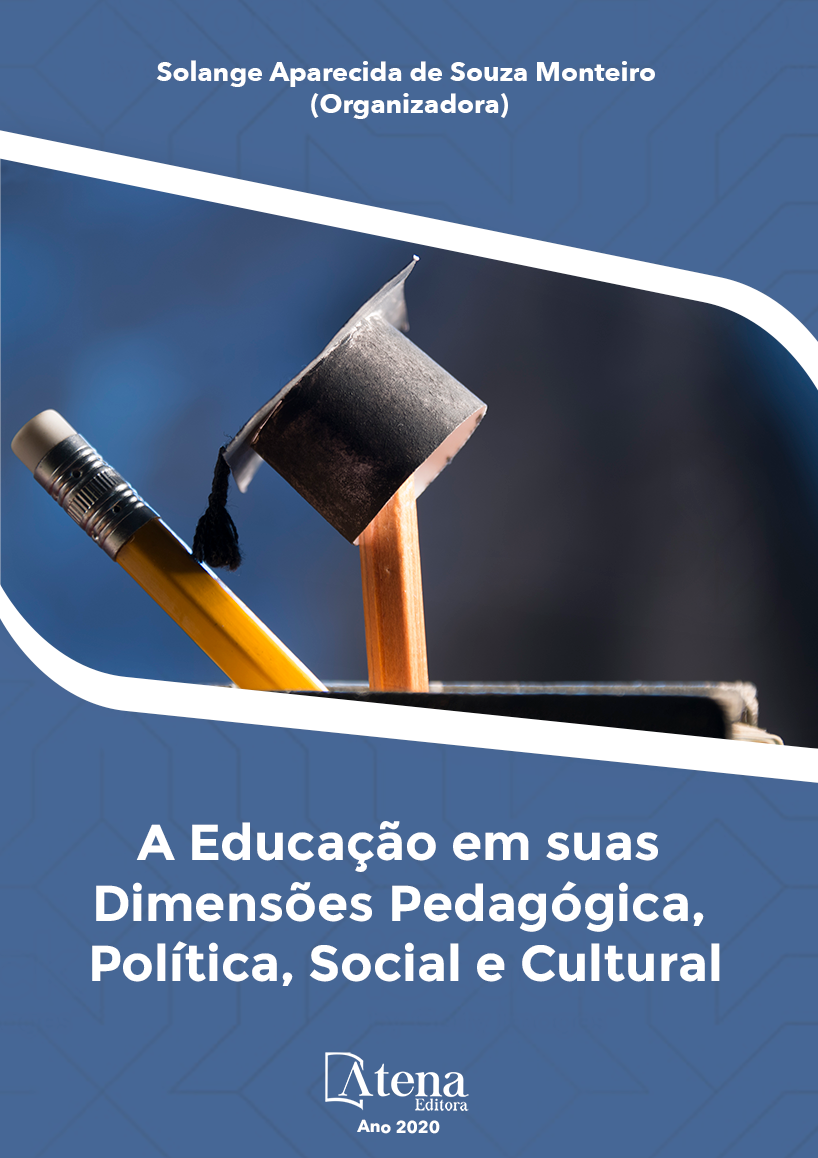
A ORIGEM DO CONCEITO DE EDUCAÇÃO E SEU PAPEL COMO FORMADORA DO SER ÉTICO
A composição enunciada tem
por objetivo discutir a origem do conceito de
Educação ou, Paideia, como fundamental para
formação do que significa ser ser humano de
fronte ao mundo. Pois, homem é o animal político
pleno que em sua completude permanece
constantemente envolvido em relações sociais,
e ao mesmo tempo, perfazendo o seu reino
interior e construindo-se mediante as fontes
que o permeiam, i.e., o homem revela-se
relativamente pela força reativa do outro.
Com efeito, o convívio humano além de ser
necessário devido à fragilidade do homem,
depende sobretudo da alteridade. Incorporado
dessa perspectiva e exortado pelos deuses
que os gregos, sobretudo Platão e Aristóteles,
potencializaram-se a excogitar o estado ideal,
a cidade perfeita, a sociedade excelente
composta por cidadãos excelentes, lançada
firmemente em direção ao bem comum, uma
vez que o cidadão grego não tomava conta
de si como um indivíduo, mas sim como parte
constituinte do coletivo, e pronto a exercer
uma função enquanto habitante da pólis. O
projeto platônico em sua completude tem como
característica basilar a apreensão de conceitos
habitantes do reino interior como: a justiça;
ética; amor; felicidade; sabedoria; bem; tanto
como os demais que possuem relação com o
objetivo último, i.e., a busca pela hecceidade.
Essa finalidade foi o elemento essencial da
constituição do mundo consagrado por Platão
como divino, o mundo formas perfeitas, das
essências, o mundo eterno, propriamente bom,
e harmônico. Destarte, a educação compõe a
compleição estrutural do mundo platônico como
a força motriz do caráter dos cidadãos em strictu
sensu, e, em lato sensu, representa o elemento
principal para harmonizar a estrutura perfeita
do mundo.
A ORIGEM DO CONCEITO DE EDUCAÇÃO E SEU PAPEL COMO FORMADORA DO SER ÉTICO
-
DOI: 10.22533/at.ed.27620130211
-
Palavras-chave: Eudaimonia. Paideia. Ética. Amor. Educação.
-
Keywords: Eudaimonia. Paideia. Éthics. Love. Education.
-
Abstract:
The composition aims to discuss the origin of the concept of Education, Or
Paideia, as fundamental for the formation of the meaning to be human facing the world.
For man is the full political animal that in his completeness is constantly involved in
social relations, and at the same time, making up its inner kingdom and building through
the context that permeate so, that is, man is revealed relatively by the reactive force of
the other. Indeed, human conviviality, besides being necessary due to man’s fragility,
depends mainly on otherness. Incorporated from this perspective and exhorted by the
gods that the Greeks, especially Plato and Aristotle, were empowered to excogitate
the ideal state, the perfect city, the excellent society composed of excellent citizens,
launched firmly towards the common good, since the Greek citizen did not take care
of himself as an individual, but as a constituent part of the collective, and ready to
perform a function as a inhabitant of the Pólis. Platonic design in its completeness has
as characteristic the basic apprehension of concepts inhabitants of the inner kingdom
such as: the Justice; the ethics; the love; well-being; knowledge; good; as much as the
others that are related to the most recent objective, that is, a search for essence. This
purpose was the essential element of the constitution of the world consecrated by Plato
as divine, the perfect world forms, the essences, the eternal world, properly good, and
harmonic. Thus education forms the structural complexion of the Platonic world as the
driving force of the character of citizens in strictu sensu, and in lato sensu represents
the principal element for harmonizing the perfect structure of the world.
-
Número de páginas: 14
- Pedro Calixto Ferreira Filho
- Devanir Pereira dos Santos Canovas
- Lucas Toshitaka Yatsugafu Longo


